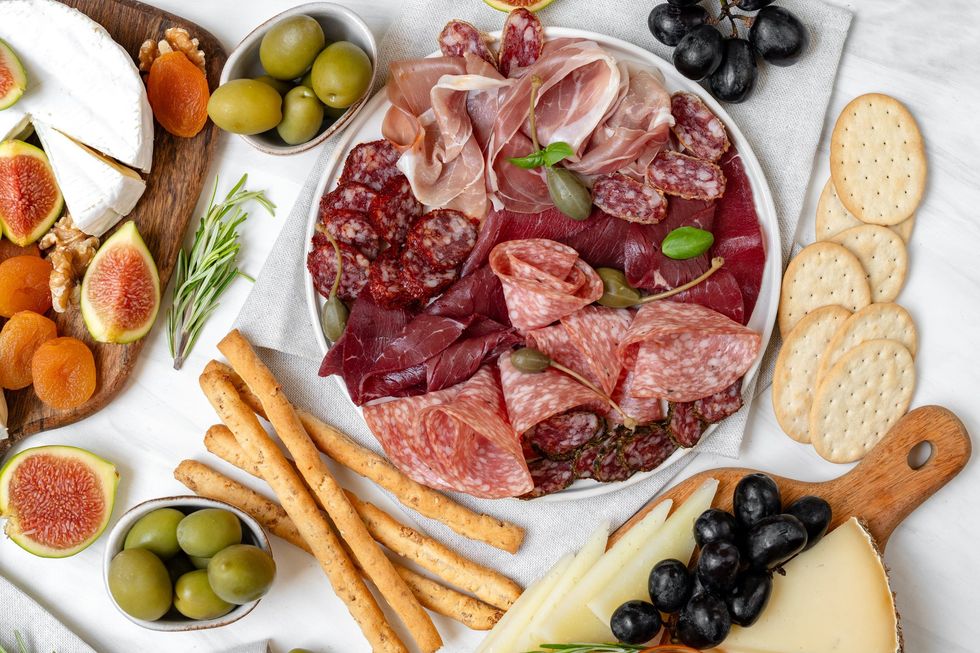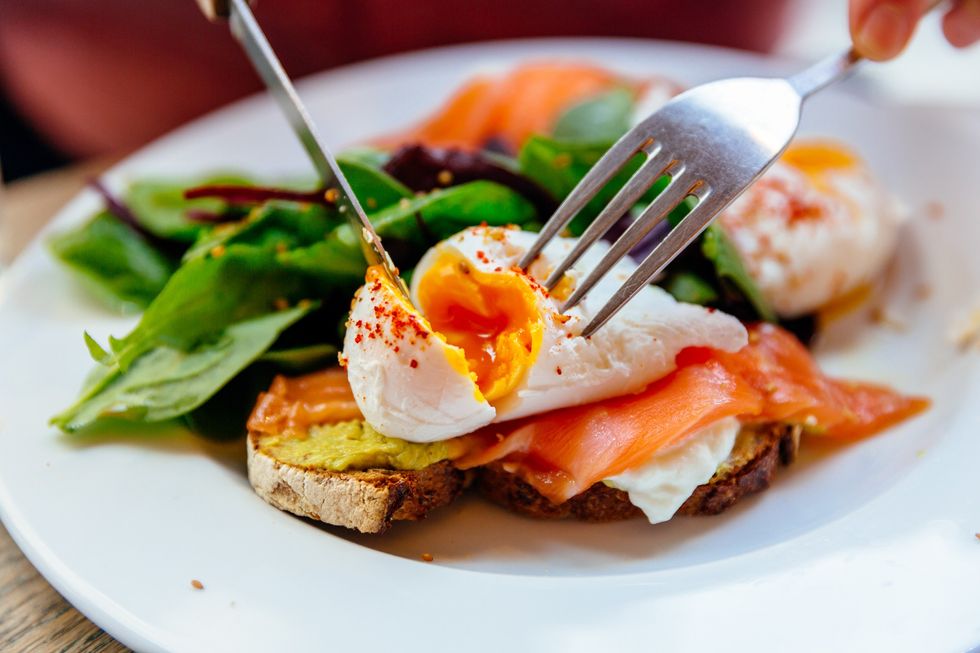Could protein be sabotaging your weight loss goals? Doctors tell slimmers to be mindful in light of new study

'The key takeaway is not to avoid protein, but to choose smarter protein'
Don't Miss
Most Read
Latest
If you're embarking on a weight loss journey, most experts will advise you to increase your protein intake.
It's satiating, boosts metabolism, and enhances body composition by decreasing fat mass while preserving fat-free muscle mass. If you're exercising, it also helps speed up repair and recovery.
According to Harvard Health, the best protein sources are beans, peas, and lentils; nuts and seeds; lean meats; fish; dairy products; and soy products.
But other protein sources could actually be doing you more harm than good...
A shocking new study by online doctors has found that nearly all popular protein items are ultra-processed.
TRENDING
Stories
Videos
Your Say
Ultra-processed foods (UPFs), as coined by the NOVA system, typically contain more than one ingredient you "never or rarely find in a kitchen".
They also tend to include many additives and ingredients that are not typically used in home cooking, such as preservatives, emulsifiers, sweeteners, and artificial colours and flavours.
The research team at online doctor ZAVA looked at 55 different protein products, including drinks, bars, special breads, yoghurts, and savoury snacks.
Worryingly, the doctors discovered that a whopping 94 per cent of these products fell into the ultra-processed category, despite being marketed as healthy.
That means 52 out of 55 items were packed with the kinds of ingredients you'd rarely find in your home.

Deli snacks may pack a lot of protein, but they're also 'extremely salty'
|GETTY
What's more, one in four of these protein-labelled products turned out to be genuinely "unhealthy" because they're loaded with sugar, fat, or sodium, ZAVA warned.
The numbers are quite staggering when you look at what's actually in these products.
Protein drinks average 19.3g of sugar per serving, while protein bars get 40.5 per cent of their calories from fat, with some actually containing more sugar than protein.
Also worrying is the sodium content in many ultra-processed high-protein foods. The study revealed that while savoury protein snacks, particularly the deli items, do pack plenty of protein, they're also "extremely salty".
LATEST DEVELOPMENTS:

'The key takeaway is not to avoid protein, but to choose smarter protein'
|GETTY
In fact, one beef stick the researchers examined contained more sodium than you'd find in a fast-food burger.
For slimmers, the findings are particularly worrying, as these protein-packed choices could be undermining their goals in plain sight.
You might think you're making a healthy choice, but those extra calories from salt, sugar, and fat can quickly add up.
The ultra-processed nature of these products is another concern, as they typically contain preservatives, emulsifiers, sweeteners, and artificial colours that you wouldn't use at home. They're designed to have a long shelf life, not necessarily to help you shed pounds.
ZAVA's Dr Crystal Wyllie commented on the dangers of eating UPFs on a weight loss journey, particularly for those taking GLP-1 medications such as Wegovy or Mounjaro.
She said: "What our analysis shows is a troubling disconnect between consumer expectations and nutritional reality. Almost all protein products on supermarket shelves are ultra-processed. They may hit a protein target, but they quietly compromise on sugar, salt, or fat.
"This is especially important for patients on weight loss treatments like Wegovy. With appetite suppressed, every bite counts, and ultra-processed proteins are calorie-dense, eaten faster, and don’t provide lasting fullness. That means patients may waste their reduced intake on foods that don’t support long-term success.
"The key takeaway is not to avoid protein, but to choose smarter protein. Whole food sources, eggs, Greek yoghurt, chicken, fish, or legumes, deliver lasting satiety and support the body's natural hunger regulation, without the hidden pitfalls of ultra-processing."
For a high-protein diet that supports weight loss, slimmers should always prioritise unprocessed or minimally processed options.
Yoghurts and protein breads also "strike a nice balance", offering moderate calories and protein with lower sugar levels, Dr Wyllie concluded.
How much protein should I eat per day?
The British Heart Foundation (BHF) offers guidance on how much protein we should aim for every day.
In the case of healthy adults, the recommended daily intake of protein is 0.75g per kg of body weight, around 45g a day for a 60kg woman and 55g a day for a 75kg man.
With age, this figure should increase as "protein becomes even more important for maintaining muscles, healing, and supporting your immune system".
Consequently, people over 65 are advised to eat around 1g to 1.2g of protein per kg of body weight per day.
However, it's crucial to note that these are simply guidelines and everyone is different. Before drastically changing your diet, always consult your GP.
Our Standards: The GB News Editorial Charter










